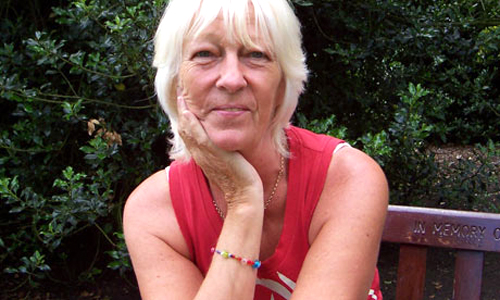
Those who battle against injustice have lost a dear friend and comrade with the death of Susan May, who died of cancer aged 68 on 30 October.
In March 1992 Susan was wrongly convicted of the murder of her aunt, 87-year-old Hilda Marchbank. Susan was her aunt’s carer and found her body in bed, where she had been beaten and suffocated. The police believed it was a robbery gone wrong – the house had been ransacked. But suspicion fell on Susan after she denied being in a relationship with a local man. Susan said she lied because: ‘It was none of their business and nothing to do with auntie’s death’.
At her trial, the Crown relied on forensic evidence. An expert witness told the court of marks on the wall which were said to contain Susan’s fingerprints and her aunt’s blood. The suggestion was Susan had stumbled along the wall in the dark after killing her aunt.
She was found guilty and ordered to serve life with a minimum of 12 years.
What the jury did not know, because the police failed to disclose it, was that a neighbour had seen an unoccupied car with its engine running at midnight on the day of the murder and later saw it driven away with three men in it. Nor did police disclose they had received two anonymous phone calls naming a local man, a heroin addict with ‘form’ for robbing elderly people. A car, matching the description of the one seen outside the murder scene, was linked to one of the men named.
Susan was released in 2005, ‘on tariff’, despite refusing to attend any of the ‘offending behaviour courses’ which are usually vital for a life sentence prisoner to get released. She returned to live in Royton.
Susan’s closest friend Dorothy Cooksey and her brother Geoff Goodwin set up a campaign group, The Friends of Susan May (FOSM).
Susan’s case was twice rejected by the court of appeal, but is currently being considered by the Criminal Cases Review Commission which looks set to refer her case back for a third appeal. One of Europe’s leading fingerprint experts has produced a report stating unequivocally that the ‘marks on the wall’ contained sweat, not blood and were made before the killing.
Many victims of miscarriage of justice, understandably, tend to be consumed by their own case. Not Susan; throughout her long campaign to clear her name, she always expressed concern – and deep knowledge – of the plight of others in the same position. FOSM say the fight to clear Susan’s name goes on and her spirit remains with them.
Eric Allison




